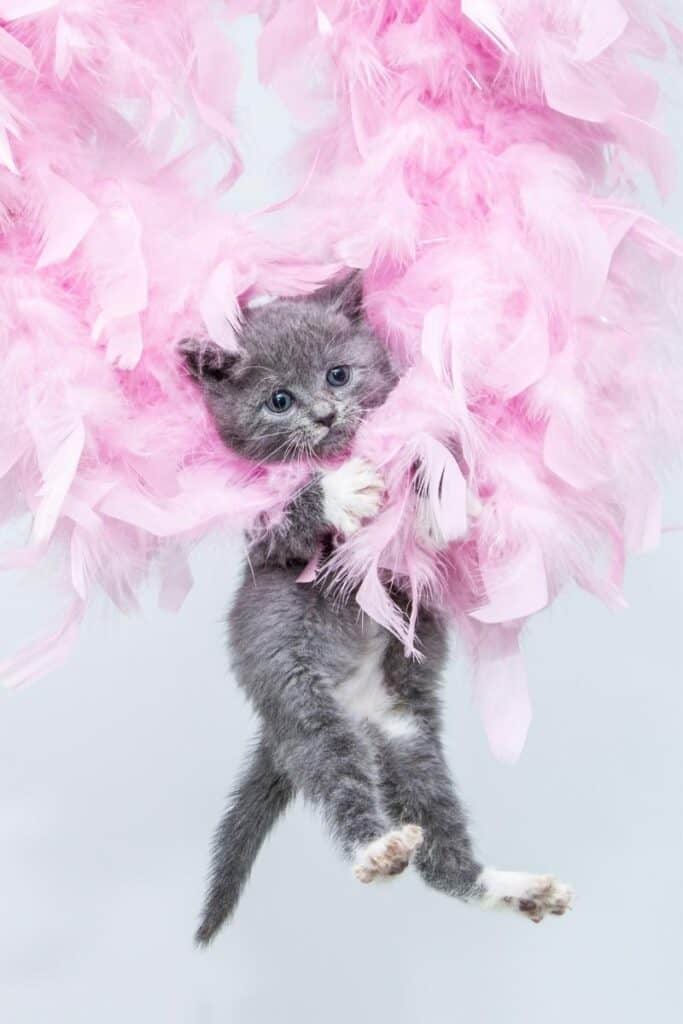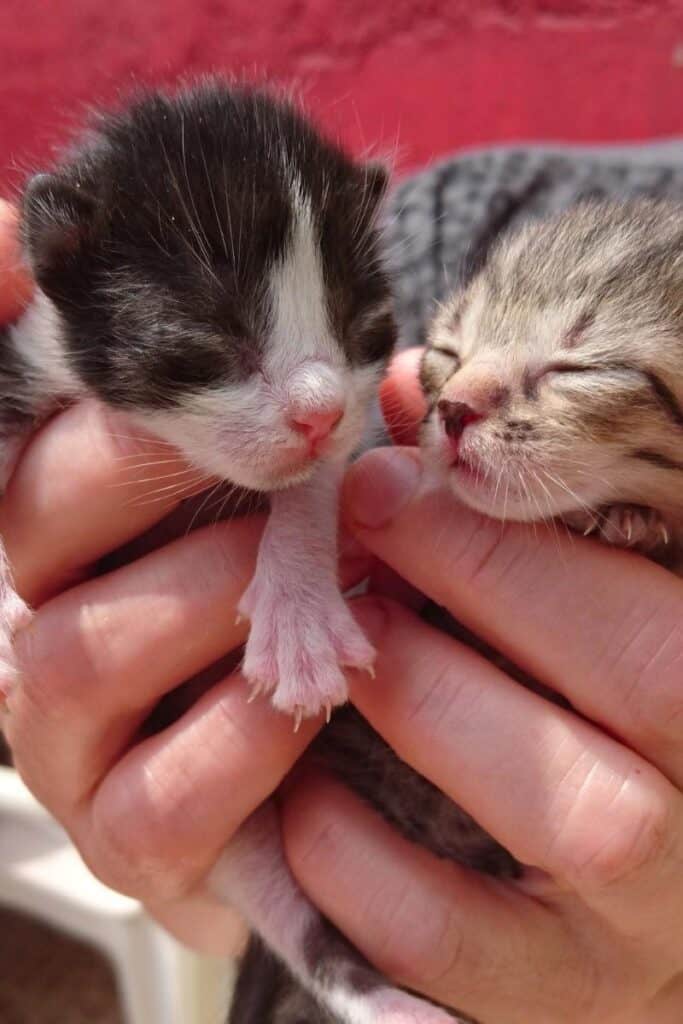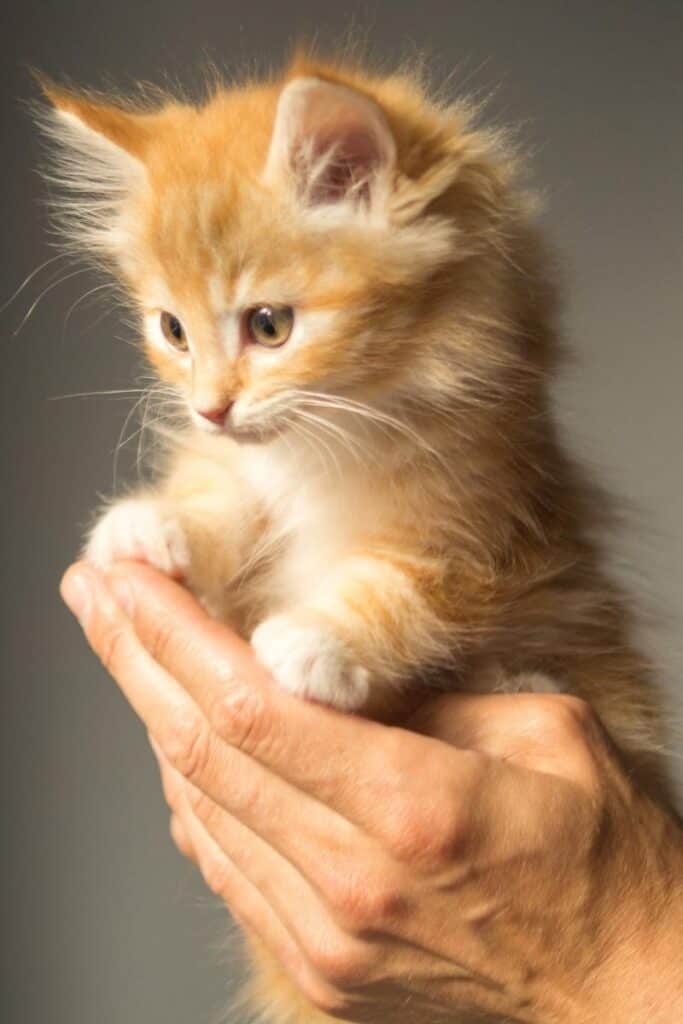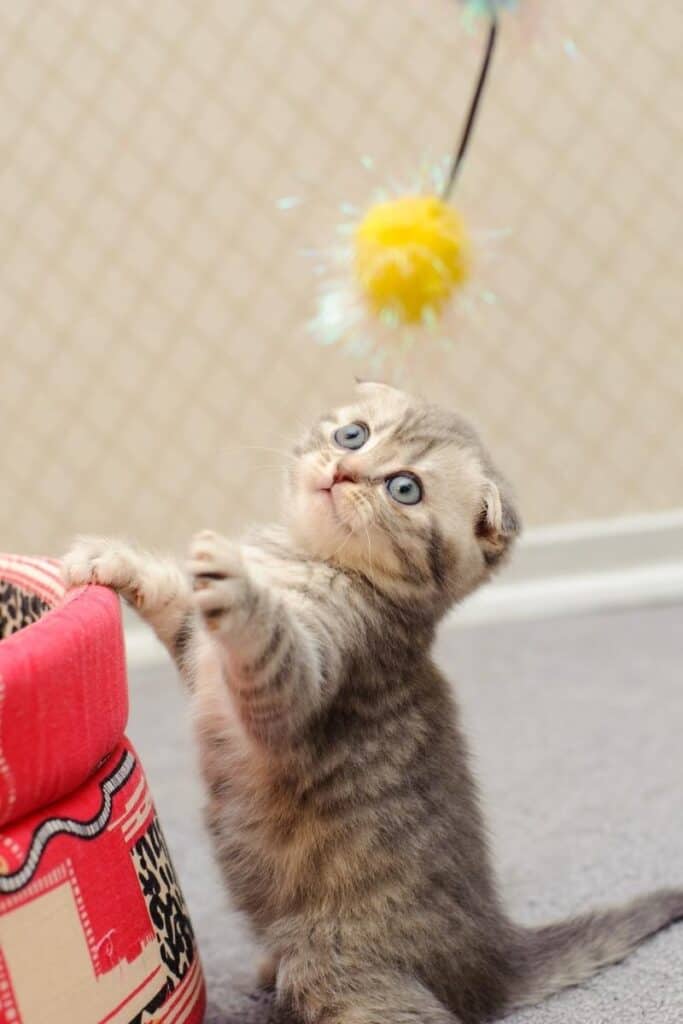While they’re adorable, they’re also a little strange too. From bizarre behaviors to being born with blue eyes, check out these fun facts about kittens!

Kittens are one of the most entertaining and adorable animals on the planet. They’re so much fun to play with, and they just make everyone’s lives better.
While we’ve come to appreciate the uniqueness of cats, kittens are completely different. They are so playful and loving – none of that disdain cats can show!
With that in mind, we wanted to put together this list of fun facts about kittens that you probably didn’t know. It might just make you look at your little fluffball in a different light.

Contents:
How much do you know about kittens?
Cats are well renowned for their curiosity, which regrettably leads to them getting into trouble regularly. These adorable, cuddly little furballs are also well-known for their compulsive need to groom themselves.
Given how famous cats are all over the world, you’d think that by now we’d have learned all there is to know about these beautiful animals. That isn’t the case though.
Kittens are nothing if not unpredictable, and it seems as if the world is discovering something new about our feline companions daily.
However, despite humans having been domesticating cats for thousands of years, there is still much to learn about these creatures. For example, did you know that a cat can leap up to five times the height of its body? Or how about the fact that one of the world’s most beneficial medicines is named after the feline?
In light of this, we thought it would be a good idea to compile a list of some interesting, fun facts about your kittens as your favorite pet that you may not be aware of. This knowledge may not fully transform the way you interact with your cat, but it should at the very least assist you in better understanding them.
We really hope you enjoy these random kitten facts that’ll make you say “wow!”

15 Fun Facts About Kittens
1. Kittens are born blind and deaf
Kittens aren’t just born with their eyes closed, but with their ear canals closed too. After birth, their eyes normally open between 7-14 days. Their ear canals open after 10-14 days.
Kitten’s eyesight and hearing improve slowly over time after this point. Weeks after, their eyesight and hearing progressively improve and are entirely formed by the time they are around 6 weeks old.
2. Kittens are usually born with blue eyes
Newborns often have blue eyes at birth, but the iris color develops throughout the first year or two, and it is likely to change as they get older.
Kittens are born with blue-grey eyes, which make them even cuter by our standards. Some breeds, like the Siamese, keep their blue hue, but most do not. After a year, their eye color should be permanent.

3. Their mothers boost their immunity
In the first few weeks, kittens don’t develop antibodies. Instead, they get important nutrition and antibodies from their mother’s colostrum (newborn cat milk).
The kitten’s intestines are built to absorb antibodies, protecting them from illnesses swiftly. If a kitten cannot get colostrum from its mother, some veterinarians administer injections of adult cat serum to help transmit antibodies.
4. They can’t go to the toilet alone
Things get a bit gross here, but kittens can’t pee or poop on their own. As one could assume, this is a critical body function. Mother cats are aware of this and assist their kittens. They will lick their infant’s stomach and rear to stimulate the digestive tract and assist in the process of digestion.
5. Superior senses
This kitten fact may make you a little envious. Kittens have a superhuman (or supercat?) sense of smell. An additional smell organ called the vomeronasal organ develops after about 4 weeks to help them locate their moms.
Also, they can hear by 4 weeks old. And, they have the most delicate hearing of any land animal. Humans can hear at 20,000 Hz, whereas cats can hear at 65,000 Hz. We told you they had super senses!

6. Kittens begin walking around 3 weeks old
While some newborn animals can stand up on their own within minutes, cats take a lot longer. Kittens don’t walk till 3 weeks old. Their first steps are cute and shaky. Then, a week after becoming mobile, they start running and playing. Time to get the string out.
7. Who’s the daddy?
If a litter has several kids, there may be multiple daddies. This is because each egg can only have one sperm. And if mom cat mates with many men during the same heat cycle, her eggs may be fertilized by sperm from multiple cats. This is known as superfecundation if you’re interested in the technical term. It explains why some kittens in a litter seem so different.
8. Kittens eat every 2 to 3 hours
Another interesting fact about kittens is how much kittens need to eat to survive. When newborns are tiny, their bodies need a lot of nutrition to grow. They need to be nursed every 2-3 hours.
Bottle feeding kittens may be difficult, but it is possible to do it yourself. However, you can’t skip a feeding, so you need get up every two hours and don’t leave the kittens alone. It can be exhausting raising a kitten without its mom around!

9. Kneading serves a function
When cats flex their paws like kneading, we call it “making bread”. It’s adorable but also vital. They do it to enhance breastfeeding milk flow. Then, when they become older, it suggests they’re seeking comfort.
10. Fleas are a serious problem
Nobody wants fleas, but kittens are particularly vulnerable. They’re too young for flea creams. But if they catch the parasites, they risk getting additional ailments. Their immune systems are still developing, therefore illnesses may be lethal.
11. Spaying and neutering are critical
While a five-month-old cat may still seem to be a kitten, they are physiologically mature enough to breed. Procrastinating on spaying or neutering a cat is never a good idea. There are just too many homeless animals dying in shelters to take a chance on an unexpected litter.

12. They’re chatty babies
Apart from their adorable squeaks, kittens learn to meow shortly after birth. It’s a means for them to communicate with mom and alert her that they’re hungry.
A litter of kittens is a startling amount of noise. Once they have stopped feeding on their mother, kittens meow at people to get what they want.
13. Maintain the cleanliness of the litter box
At the very least, scoop the litter box once a day. If your kitten isn’t taking advantage of it, try several litters until you discover one she enjoys.
Kittens often prefer a softer, sand-like surface to play on. If she eats the litter, use an edible formula, like maize or wheat.
14. At this age, their not difficult to groom
You may play with their paws and open their jaws to see what they’re made of. This will make things like nail clipping, pilling, and toothbrushing much more straightforward when they grow up.

15. Kittens are capable of becoming parents very young
Kittens may be spayed as early as 8 weeks. In addition, spaying/neutering will eliminate undesirable heat-related behaviors like urine marking and howling.
Who wants more fun facts?

If you’re looking for some recommendations, these are a few of our favorite fact books to buy. We use these when planning fun trivia nights with family and friends!






